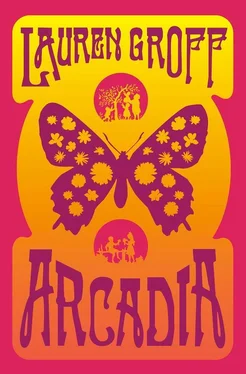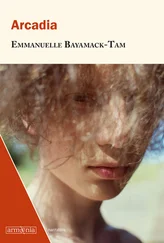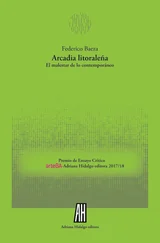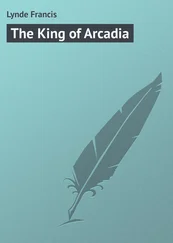Lauren Groff - Arcadia
Здесь есть возможность читать онлайн «Lauren Groff - Arcadia» весь текст электронной книги совершенно бесплатно (целиком полную версию без сокращений). В некоторых случаях можно слушать аудио, скачать через торрент в формате fb2 и присутствует краткое содержание. Год выпуска: 2012, Издательство: Hachette Books, Жанр: Современная проза, на английском языке. Описание произведения, (предисловие) а так же отзывы посетителей доступны на портале библиотеки ЛибКат.
- Название:Arcadia
- Автор:
- Издательство:Hachette Books
- Жанр:
- Год:2012
- ISBN:нет данных
- Рейтинг книги:3 / 5. Голосов: 1
-
Избранное:Добавить в избранное
- Отзывы:
-
Ваша оценка:
- 60
- 1
- 2
- 3
- 4
- 5
Arcadia: краткое содержание, описание и аннотация
Предлагаем к чтению аннотацию, описание, краткое содержание или предисловие (зависит от того, что написал сам автор книги «Arcadia»). Если вы не нашли необходимую информацию о книге — напишите в комментариях, мы постараемся отыскать её.
Arcadia — читать онлайн бесплатно полную книгу (весь текст) целиком
Ниже представлен текст книги, разбитый по страницам. Система сохранения места последней прочитанной страницы, позволяет с удобством читать онлайн бесплатно книгу «Arcadia», без необходимости каждый раз заново искать на чём Вы остановились. Поставьте закладку, и сможете в любой момент перейти на страницу, на которой закончили чтение.
Интервал:
Закладка:
He says this, yet there is a strange thrill in him, a sharpness, and he understands how very much he longs to find someone who will prove him wrong.
Well, says Sylvie, pushing the door into the bracing chill. In the sunlight, the dark moles on her face are even darker, her skin translucent. There’s a blue branching at her temples. She stands, all awkward angles, one foot rubbing on the other. Her glance darts away, darts back to his chin. Try me, she says, quickly, under her breath.
Layer-speak. He waves and goes off. Three blocks later he is attacked by staircase wit. He should have said, he understands now, It’s not for me to try.
Every few semesters, there is something like this: a shy girl who flushes when he stands near, a confident girl whose eyes go dewy with suggestion. Helle used to say it was because Bit was small and gentle and emanated care. They look at you and see a husband, she said and laughed.
I always thought it was because I’m overwhelmingly sexy, Bit said.
Oh, you’re sexy, she said. But closer to the ground, which makes you more humble. You’re unthreatening.
Bit had felt the sting of this. Is that what you see? he said, at last.
Helle came close, then, and put her forehead against his, her eyes smiling. I see my best friend, she said. At the time, it was enough.
He is cleaning the darkroom at the school, wondering where his dreams went. They were not so very large; they were not too heavy to carry. One legacy of Arcadia is that his push for happiness was out of sync with the world’s; his ambition was for safety, security, a life of enough food and shelter and money, books and love, the luxury of pursuing the truth by art. The luxury of looking deeply, of finding a direct path to empathy. It didn’t seem unattainable. In the city, where there were a million talented artists, his quiet, slow pursuit was seen as a form of ambitionlessness. And even that push, after Helle, had vanished.
In a kind of anger, he grabs a developed photograph — a test run to figure out the kind of cropping needed — and writes on the back. He lists the solo shows he knows he should want, the fellowships, the competitions won, lists the galleries he should be courting, the prices he should be charging. He envisions a new set of portraits, blown up so large the whole is swamped by the particulars: this follicle, this pose. He writes a step-by-step plan over the next year to get it all and locks the darkroom behind him, feeling powerful.
But the paper embarrasses him, the vulgar scrawl of it. Just as he’s leaving the building, he folds it over and over and shoves it into his wallet. There it sits all day, a strange, bad weight. It falls out of his pocket that night as if telling him something he already knows, and he is relieved to shove it at last into the trash.
His women call him. Hannah from the desert every day; every few weeks, Pooh, Marilyn, Midge, Eden, Regina, Sweetie. Once a week, Astrid, breathless for news. He says, as always, that he has heard nothing from the police, nothing from the private detective. The detective is ferrety and lush of moustache, like an overgrown Hercule Poirot, a cliché of grooming that, absurdly, had put Bit at ease when he met the man. But Bit is starting to suspect the detective is doing nothing more than pocketing the thousand dollars a week that Bit can’t afford. Astrid’s voice always breaks a little on the phone.
Today, she says, Oh, my poor girl. She’s dead, I can feel it.
A flare of anger in Bit, and he says, Astrid. She’s out there. I believe that she’s still alive.
A breath on the other end. Assent on the intake. Yes, she says slowly. Do believe. One of us must.
Immediately afterward, Jincy calls, her twins screaming behind her. For six months last year, Jincy wouldn’t speak to Bit, after she’d taken Bit and Helle out to dinner and stuffed them like foie gras geese and had played nervously with her hair so that it spun up from her head in a wild frizz, until Helle had put down her fork and said, Okay, Jin, tell us what this is all about. Then Jincy looked at Bit and said in a great blurt that she was forty-two already and always thought she didn’t want kids but now she wanted them, badly, and would like for Helle and Bit to agree to donate sperm, and, oh, my God, she actually said it. And she didn’t mean to offend them. So consider it? And they said they would and soberly went home. Bit watched Helle get undressed that night in the dark, the slow peel of the black dress from her shoulders. Bare, they began to shake. He reached out to comfort her, only to find she was laughing. When she calmed, she said, You should do it. It’s the right thing. Plus, everyone knows you should have married Jincy anyway. You’d be happier. She smiled wanly and pulled up the sheets and fell asleep. And so Bit told Jincy no, though it broke his heart; he said it was because the world was too terrifying these days with one child of his in it. But he knows he declined because of Helle’s steadfast refusal to be jealous. When Jincy was pregnant with the twins, she rang the doorbell and came in with an armful of peonies and a chocolate cake, saying, Bygones, and that was the end of that.
He hangs up at the end of the call and is about to go back to the mural on Grete’s wall — he is painting in Titus, a giant, at the Gatehouse — when the phone rings and it is Hannah.
Nothing? she says.
No, he says. He imagines his mother. She has lost a great deal of weight: she looks like one of those lean, browned outdoorsy women who hike all day, with their beautiful legs and sunshot hair. But her voice has grown progressively darker. He says, Are you okay, Hannah?
I guess, she says. I think I’m lonely. Drinking too much.
Now he hears the bourbon in the smoky rasp. How disappointing, when people succumb to what is expected of them. Then again, his wine bottle is already empty tonight. He says, Me too.
They sit together in companionable silence. When a garbage truck churns on the street below, Bit says, Hannah, is it worth being lonely just because you’re proud? I mean. You have a choice.
Just because, Hannah says, chewing on her words. Just because I’m proud .
Well, Bit says. That’s why you’re not talking to Abe.
Please. I have better reasons than pride, she says.
There’s more to the story? Bit says. He had assumed it was so simple: money, the universal wedge between people. He hadn’t the energy to imagine more.
Isn’t there always? Hannah says, and Bit understands that, whatever it is, her loyalty to Abe is still too strong to tell.
I miss her, he says, at last.
Oh, honey, says Hannah. And I miss your father, that old bastard on wheels.
Sharon opens the door raw-eyed, her brown hair puffed on her head like a mushroom cap. Grete and Frankie squeeze one another around the neck. Bit says, Bad night? and Sharon shrugs and says, Worse than average. I was served with d-i-v-o-r-c-e papers yesterday.
I’m sorry, Bit says, but he has to settle a twinge of envy; there is an endpoint to Sharon’s grief, at least.
Yesterday, the girl Helle had been was everywhere. In photographs on the walls in the apartment, in the frail wrists of the barista who served him tea at the university café, in the magazine on the coffee table at his dentist’s. These young starlets in Hollywood all seem to want to be who she had been: skinny within layers of clothing, with her clear white face, her vagueness. It is as if the idea of Helle he’d carried around with him for twenty-five years had bloomed external into the world.
He had barely survived his transition from Arcadia to the gritty Outside when he was fourteen. He was lonely. There were ugly urban trees, pigeons, piss caked on walls. He knew nobody and filled his time by walking for hours. The streets of Queens pinched crookedly into other streets; the parks, a mockery of countryside. He felt tender, unshelled. The warp of stories that had always blanketed him, his personal mythology, was invisible, so nobody knew him; no one knew he was the miracle baby, Little Bit of a Hippie, Abe and Hannah’s boy; no one knew about Abe’s fall and Hannah’s legendary strength and the fable of his meeting Verda on a snowy night; they didn’t know the traumas of baby Felipe and the Dartful Codger and Cockaigne Day; they didn’t know anything at all. They took one look at his slight body and tried to put him with the seventh graders; when he showed them his calculus, history, biology, they reluctantly shelved him with the juniors, two years older than he. There he rested, perilously. The other kids were incomprehensible. They fistfought, snapped gum, played sports as bloody as miniature wars. They were cruel. They called Bit Dippie because he was a hippie-dippie; they called him Stinkass because at first he didn’t dare to take more than two baths a week, even though water was free and soap abundant. When he came home from school, it was as if he were dragging a sack of lead.
Читать дальшеИнтервал:
Закладка:
Похожие книги на «Arcadia»
Представляем Вашему вниманию похожие книги на «Arcadia» списком для выбора. Мы отобрали схожую по названию и смыслу литературу в надежде предоставить читателям больше вариантов отыскать новые, интересные, ещё непрочитанные произведения.
Обсуждение, отзывы о книге «Arcadia» и просто собственные мнения читателей. Оставьте ваши комментарии, напишите, что Вы думаете о произведении, его смысле или главных героях. Укажите что конкретно понравилось, а что нет, и почему Вы так считаете.

![Andrea Höst - In Arcadia [Touchstone - Extras]](/books/56405/andrea-host-in-arcadia-touchstone-extras-thumb.webp)










